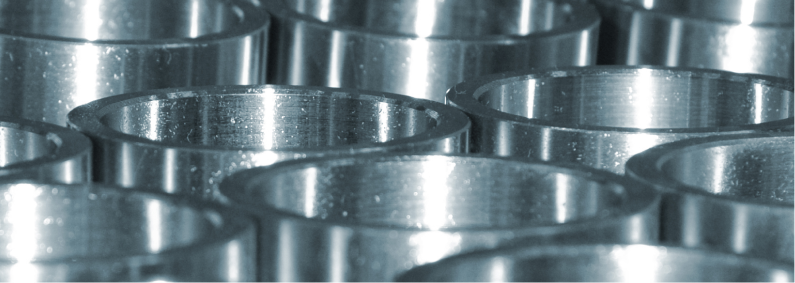Alloy Steel

Alloy steel is a versatile category of steel enhanced with additional alloying elements, such as manganese, nickel, chromium, molybdenum, and vanadium. These additions improve properties like strength, hardness, corrosion resistance, and toughness, allowing alloy steel to perform well in extreme environments and under high stress.
Alloy steels are engineered to meet specific performance requirements and are commonly used in industries such as automotive, aerospace, oil and gas, power generation, and construction.
Types of Alloy Steel
Alloy Steel Sheets & Plates
Alloy steel sheets and plates are known for their high strength, toughness, and resistance to wear and corrosion. These are used in applications that require durability and strength, such as construction, automotive, and heavy machinery industries.
Alloy Steel Pipe Fittings
Alloy steel pipe fittings are engineered to connect sections of pipe and provide high strength and durability under extreme pressures and temperatures. They are widely used in oil and gas, chemical processing, and power generation industries.
Alloy Steel Pipes & Tubes
Alloy steel pipes and tubes offer excellent resistance to corrosion, wear, and high-temperature applications. They are ideal for transporting gases and fluids in harsh conditions, making them essential in petrochemical, marine, and industrial applications.
Alloy Steel Flanges
Alloy steel flanges provide secure connections in piping systems, designed to withstand high-pressure and high-temperature environments. They are commonly used in industries like oil and gas, power generation, and marine, where reliable and durable connections are crucial.
Alloy Steel Bars & Rods
Alloy steel bars and rods offer a combination of strength, toughness, and machinability, making them ideal for manufacturing structural components, automotive parts, and industrial machinery. They are versatile materials suitable for a wide range of applications that require durability and impact resistance.
Key Properties of Alloy Steel
- Enhanced Strength: Alloying elements increase the strength of alloy steel, allowing it to withstand high stress and loads.
- Improved Hardness and Wear Resistance: Chromium, molybdenum, and vanadium help enhance the hardness and wear resistance, extending the lifespan of alloy steel in demanding applications.
- Corrosion Resistance: Certain alloy steels offer excellent resistance to rust and corrosion, especially stainless steels and chrome-moly steels.
- Good Heat Resistance: Alloy steels maintain their mechanical properties at high temperatures, making them suitable for power generation and chemical processing applications.
- Ductility and Toughness: Alloy steels retain their ductility and toughness, which allows them to absorb energy and avoid brittle failure under sudden loads.
Applications of Alloy Steel
- Automotive Industry
- Used in engine components, gears, crankshafts, and drive shafts for enhanced strength, durability, and heat resistance.
- Oil and Gas Industry
- Essential for high-pressure applications like pipelines, valves, and drill pipes, where toughness and corrosion resistance are critical.
- Aerospace and Defense
- Alloy steel is used in aircraft frames, landing gear, missile systems, and other components where high strength-to-weight ratio and heat resistance are essential.
- Power Generation
- High-strength, heat-resistant alloy steels are used in turbines, boilers, heat exchangers, and nuclear reactors to withstand extreme temperatures and pressures.
- Construction and Infrastructure
- Used in structural beams, rebar, and bridge components, alloy steel provides the strength and toughness needed for heavy construction and load-bearing applications.
- Tool Manufacturing
- Alloy steel, especially high-carbon and high-chromium tool steels, is widely used for making tools, dies, and cutting equipment due to its hardness and wear resistance.
Advantages of Alloy Steel
- Customizable Properties: Alloying elements allow precise control over mechanical properties, making alloy steel adaptable to various applications.
- High Strength-to-Weight Ratio: Alloy steel offers high performance without excessive weight, making it efficient for structural and automotive uses.
- Corrosion and Heat Resistance: Specific alloy steels offer protection against rust and scaling, even in harsh chemical and high-temperature environments.
- Enhanced Durability and Wear Resistance: Alloy steel’s toughness and hardness reduce wear and extend service life, minimizing maintenance costs.
Grades and Specifications for Alloy Steel
- ASTM A335: Specification for seamless ferritic alloy-steel pipe for high-temperature service, commonly used in power plants and refineries.
- ASTM A182: Forged or rolled alloy and stainless steel pipe flanges, fittings, valves, and parts for high-temperature service.
- ASTM A213: Seamless ferritic and austenitic alloy steel boiler, superheater, and heat exchanger tubes.
- AISI 4140: A popular chromium-molybdenum alloy steel with excellent strength, toughness, and wear resistance, often used in automotive and oil & gas applications.
Alloy Steel Solutions for High-Performance Applications
For projects demanding high strength, durability, and resistance to heat and corrosion, alloy steel offers tailored solutions. From construction to automotive and power generation, our team can help you choose the right grade and specifications for your needs. Contact us to learn more about how alloy steel can enhance your next project.
FAQs
Alloy steel contains additional elements like chromium, molybdenum, and nickel, which enhance properties like strength, corrosion resistance, and hardness. Carbon steel, by contrast, primarily relies on carbon content for its strength and hardness.
Chrome-moly steel contains chromium and molybdenum, which improve its heat resistance, strength, and ability to withstand high pressures, making it ideal for boilers, turbines, and other high-temperature environments.
Many types of alloy steel can be welded, but specific welding techniques and preheat/post-weld treatments may be necessary to prevent issues like cracking, depending on the alloy composition.

Products
Industry We Serve
- Oil & Gas industries
- Chemical process industries
- Pump and valve in high pressure component
- Food industries
- Pulp and paper industry
- Aerospace industry
- Power plant
- Mechanical component
- Sugar industry
- Cement industry
